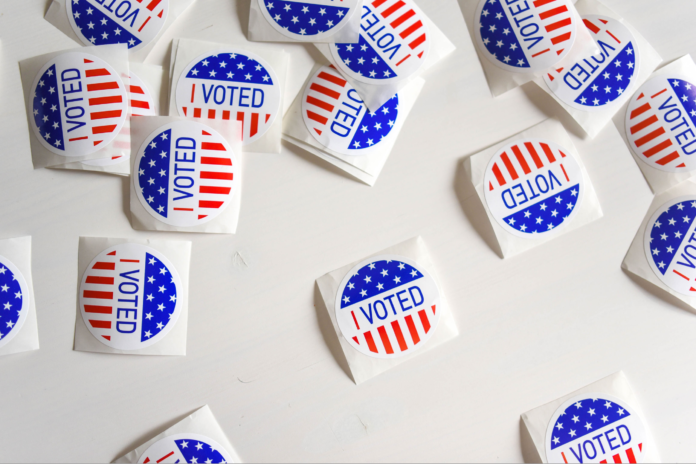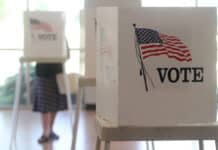Whether in Chicago or Laramie, COVID-19 concerns have led to increased support for mail-in voting.
Expecting a surge, many officials already mailed out absentee ballots, and more than half the states will make them available before the first presidential debate on Sept. 29.
The DFL has pushed Minnesota’s absentee voting date up to this Friday, more than six weeks early.
The nationwide share of ballots cast by mail steadily increased from 12 to almost 25% between 2004 and 2016. A late July poll reports 70 percent believe a postal option should be available.
Voting early might be the choice of some, including disingenuous athletes, but not me. I’ve never voted by mail, and despite partisan propaganda and our current dramatic year, I still won’t; nor will my wife, my father or most sentient people I know.
Mailed ballots go missing, get delivered late, are rejected because signatures can’t be verified, or are torn in transit.
For example, nearly 20,000 mailed Florida ballots weren’t tabulated in this year’s presidential primary because they arrived after the deadline. Across America, more than a half-million ballots were rejected as “non-conforming” in primaries. And that’s only counting 30 states surveyed. Minnesota had almost 10,000 ballots rejected and over 100,000 were tossed out in California.
In 2016, about 320,000 mailed ballots were rejected nationwide during the general election. Many expect that number to approach 1 million in 2020.
And even though the attorney general clearly explained how fraud is a major issue, that’s not even my concern.
An informed voter does not vote early. They know late-breaking developments and misinformation could alter a decision. (We know what happened just over a week before last Election Day.)
Increased early voting simply means more voters make their decisions with less information than those who wait until the first Tuesday in November.
Speaking of Tuesdays, almost two million votes were cast days before the “Super Tuesday” primaries in March. Thousands of those early ballots were for Sen. Amy Klobuchar and former Mayor Pete Buttigieg, who suspended their campaigns just hours before the big day. The votes didn’t count. When you vote early, you sacrifice power for so-called convenience.
I am absolutely not worried about catching COVID-19 from voting. Though I know privileged liberals have locked themselves in high-rise apartments for six months (letting others sacrifice on their behalf), I’ve been grocery shopping, eating out, attending baseball games, playing golf, and traveling extensively without mishap since April. Going to Walmart, Costco or partaking in urban riots is more dangerous than your local polling place. I bet many do the former, so why are they scared of the latter? The pandemic is an indoor issue.
When I voted in the primaries last month, I was done with my civic duty in about three minutes. And I came away impressed. Poll workers had the facility immaculate and organized to ensure safety. There were masks, hand sanitizer, clean pens, and space between voting booths.
As usual, our sheltered media has it wrong. It’s not a “dangerous spectacle that forced voters to choose between participating in an important election and protecting their health” as an apocalyptic New York Times editorial proclaimed earlier this year. Data indicated in-person voting posed no spike or health hazard in that election.
And remember, people in other countries actually do risk their lives to vote in person.
Much of this is ideological, with two-thirds of Joe Biden supporters planning to vote without having all the requisite information compared to barely one-third for Pres. Trump.
Democrats already doubled Republican absentee requests in North Carolina and Florida.
I like to “pull the lever” or punch the card or fill in the bubble. I’ve never missed an election in over 20 years of eligibility across five states. It’s a few minutes of my time every other year. And I always vote on Election Day because, despite a busy schedule, I make time. Polls are open 13-14 hours.
So I agree with Jeff Jacoby, who recently wrote:
“I cherish the communitarian spirit of voting together. Decades after I first entered a polling place, I am still moved by the civic ritual of assembling on a fixed date as equals, peacefully engaged in self-government. Elections are more meaningful when voters act collectively — when we leave our homes, set aside our smartphones, and join with our neighbors in a public space to help choose our leaders and make choices that will guide our government. Politics is divisive and dispiriting, but voting in person is a stirring reinforcement of the mutuality and equality that are at the core of America.”
He is correct; vote early, miss out.
A.J. Kaufman
A.J. Kaufman is an Alpha News columnist. His work has appeared in the Baltimore Sun, Florida Sun-Sentinel, Indianapolis Star, Israel National News, Orange County Register, St. Cloud Times, Star-Tribune, and across AIM Media Midwest and the Internet. Kaufman previously worked as a school teacher and military historian.

















